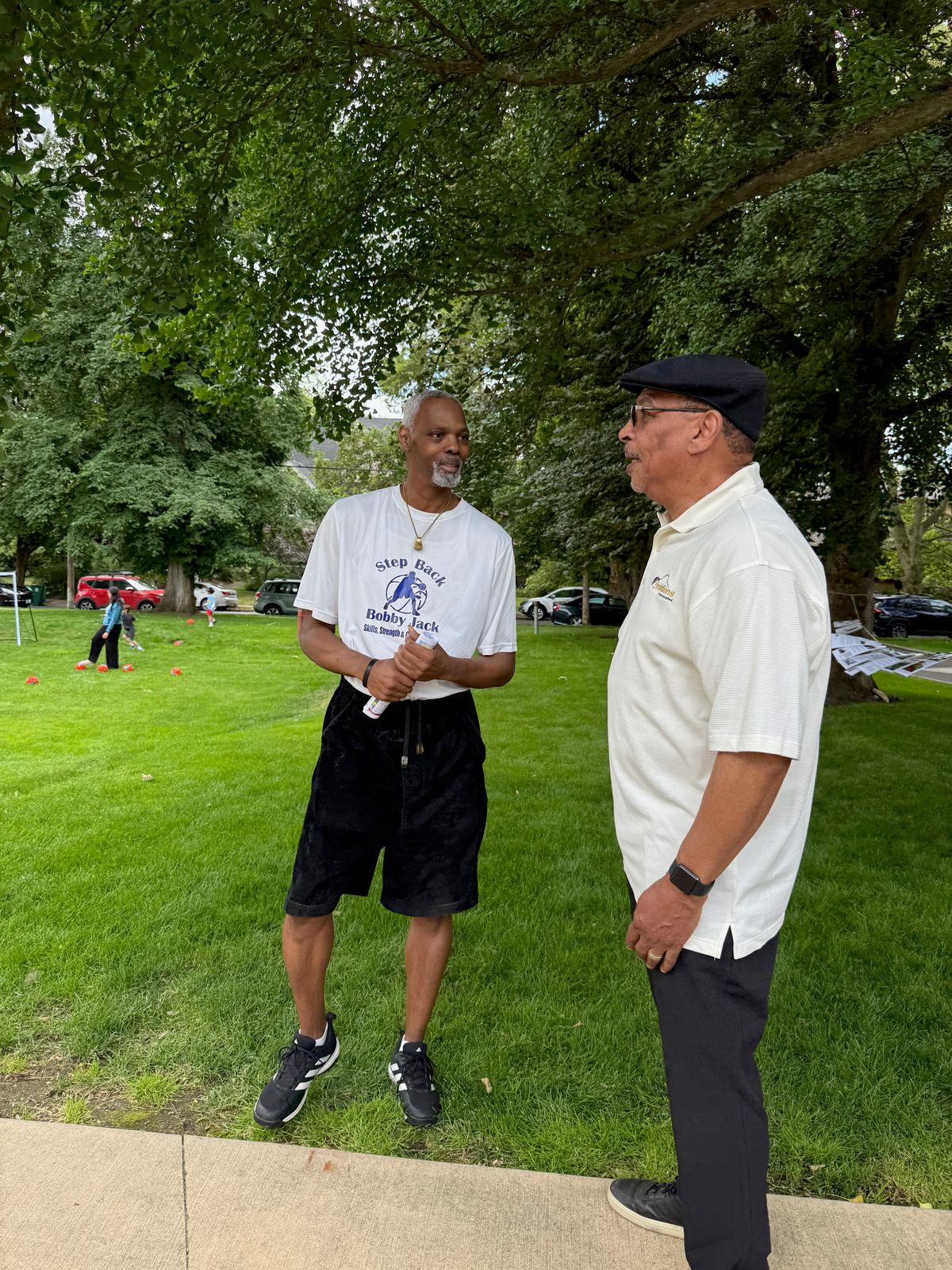On June 27, the second annual Our Stories: Black Families in Spokane event was held at the Northwest Museum of Arts and Culture, furthering a powerful community-led movement to preserve, share, and celebrate the rich legacy of Spokane’s Black residents. The event was organized by Julie Serquinia, Rob Worstell, Marsha Rooney, and Linda Strong, who each played a vital role in curating a space for intergenerational storytelling, cultural reflection, and historical preservation.
Serquinia, daughter of Jerrelene Williamson – author of African American Stories in Spokane – helped continue her mother’s legacy by inviting the community to reflect on the people, families, and spaces that shaped Spokane’s Black history. She shares: “I consider Spokane to be a very special city. Because the Black population is dispersed throughout the greater Spokane area, it can be easy to overlook our numbers. Events like Our Stories, the Genesis Awards, the annual Juneteenth picnic, Martin Luther King Jr. Day, and many others are significant as they remind us of the power of coming together in community and solidarity to celebrate our shared history. These gatherings further solidify our presence here and reaffirm that we have always been a part of this community. My goal is to establish a museum and event space dedicated to the African American community in the Inland Northwest, providing a permanent location to collect, archive, and share our stories.”
Among the presenters was Ephraim Watkins, grandson of the late Rev. Happy Watkins, who shared heartfelt reflections on his family’s deep-rooted ties to the city. James and Jerrelene Williamson spoke about the Breckenridge family legacy, while Todd Thompson and Joe Barrow highlighted the story of the Barrow family. Tracy Poindexter-Canton and Susan Poindexter presented the history of the Burnette family, one of Spokane’s earliest Black settlers. Sandra Freeman also shared her family’s contributions to the city’s cultural and civic life.
The program featured powerful poetry performances, including by Seattle Poet Laureate and Spokane native Mona Lake Jones, showcasing how Black art has long served as a vehicle for resistance, healing and cultural continuity.
A moving tribute was also paid to The Lion’s Den, a once-vibrant Spokane venue that served as a local counterpart to Harlem’s Cotton Club. Its roots trace back to the 1920s, when a Black man from Tennessee named Ernest J. “E.J.” Brown arrived in Spokane as a chauffeur. With the support of his wife Theo and a modest investment from his former employer, Brown helped build an enclave of Black culture and nightlife in the region.
It began with the Sawdust Trail, a café in Spokane Valley known for its Southern fried chicken, barbecue ribs, and Theo’s lemon meringue pies – flavors Spokane had never tasted before. In 1929, they launched The Pirate’s Den, a 350-seat nightclub lit with neon signs that invited patrons to “Dine” and “Dance.” By 1936, it became Club Harlem, a venue that echoed the glamour and soul of New York’s famed Cotton Club.
While the club primarily served white patrons during the week, Sunday and Monday nights were reserved for Spokane’s Black community – nights filled with music, elegance, laughter, and freedom. Club Harlem was more than entertainment; it was a sanctuary in a segregated city, a stage for local brilliance, and a cultural cornerstone. Even after a fire destroyed the club in 1951, its legacy endured – helping to send six of the Browns’ seven children to college.
Our Stories is part of a broader, ongoing effort to document and uplift Spokane’s Black history – not just to honor the past but to strengthen connection, belonging, and pride across generations. As this year’s event reminded attendees, wherever we are, we make a way.
